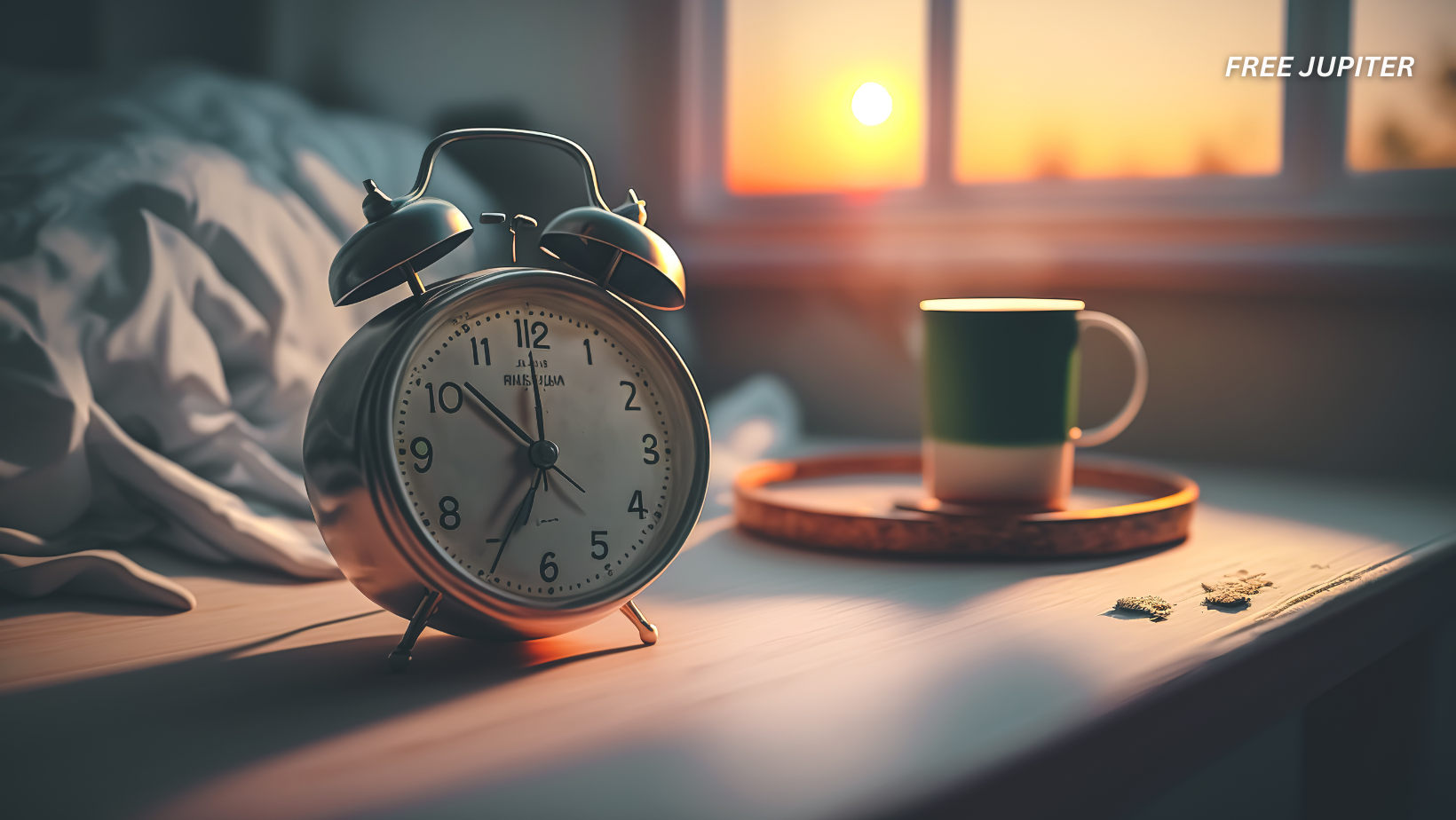Disclaimer: The information in this article is for general informational purposes only and is not medical advice. We are not doctors, and this website is run as a family hobby project. Always consult a qualified healthcare professional before making decisions about your health. Please fact-check any claims and use this content as a starting point, not a substitute for professional guidance.
If you’ve ever wondered whether the hour your alarm clock rings could influence your mood, you’re not alone. Recent research in sleep science and chronobiology has uncovered a fascinating link between the time we rise and our overall sense of well-being. It turns out that when you wake up might matter just as much as how long you sleep-maybe even more.
Let’s explore the quirky world of sleep timing, the science behind early rising, and how different cultures approach the first moments of the day. Along the way, we’ll see how tweaking your routine could be the key to unlocking a happier, more energetic version of yourself.
Why Wake-Up Time Matters More Than You Think
Our internal clocks, known as circadian rhythms, orchestrate everything from hormone levels to mood swings. These rhythms are tightly linked to the natural cycle of daylight and darkness. When we align our sleep and wake times with the sun, we’re not just following tradition-we’re tapping into a biological system that’s been fine-tuned over millennia.
A comprehensive study from the University of Michigan found that when people’s sleep schedules drift away from their internal clocks, their mood takes a noticeable hit. In fact, even a modest misalignment can lead to a measurable rise in symptoms associated with mood disorders. The takeaway? It’s not just about going to bed early; it’s about syncing your sleep with your body’s natural rhythms.
1
Let’s get specific. What does science say about the best time to wake up? Multiple studies point to the early hours-just after sunrise-as the sweet spot for peak happiness and mental clarity.
A large-scale analysis published in BMJ Mental Health, which examined responses from over 49,000 people, revealed that self-reported happiness, satisfaction, and a sense of purpose are all highest in the morning. These positive feelings gradually decline as the day wears on, reaching their lowest point around midnight. The implication is clear: the earlier you rise (within reason), the more likely you are to feel upbeat and optimistic.
Endorphins, those feel-good hormones, are also more abundant when you wake up with the sun. This natural boost can set a positive tone for the entire day.
Japan: A Case Study in Morning Harmony
Japan offers a compelling real-world example of how wake-up times can shape a nation’s mood and longevity. Traditionally, Japanese people adjust their wake-up times with the seasons-around 7 a.m. in winter and as early as 5 or 6 a.m. in summer. This practice keeps them in sync with daylight, supporting both hormonal balance and emotional well-being.
But it’s not just about the hour on the clock. Many Japanese start their day with calming rituals such as gentle stretching, meditation, or reading. These peaceful habits help them avoid the frantic rush that characterizes many Western mornings, setting a tranquil tone that carries through the day.
Despite these traditions, Japan faces a modern sleep challenge. The average adult in Japan sleeps just over seven hours a night, which is about an hour less than the global average. This shortfall has prompted public health campaigns encouraging better sleep habits for all ages, from toddlers to seniors. For example, guidelines suggest young children get up to 13 hours of rest, while older adults are advised not to linger in bed for more than eight hours to prevent the risks associated with oversleeping, such as cognitive decline.
Segmented Sleep: The Two-Part Night
Here’s a quirky twist: some people in Japan practice segmented sleep, dividing their rest into two distinct periods. They might sleep from 9 p.m. to midnight, wake for a short period of quiet activity, and then return to bed from 2 a.m. to 5 a.m. This pattern, though unconventional, is believed to be surprisingly restorative. Advocates say it leaves them feeling refreshed and energized, even if the total sleep time is less than the recommended eight hours.
Experts suggest that this approach works because it aligns with natural fluctuations in alertness and restfulness throughout the night. However, adopting segmented sleep requires careful adjustment and may not suit everyone.
How Mood Ebbs and Flows With the Clock
It’s not just the time you wake up that matters, but how it fits into your overall sleep-wake cycle. Wearable technology, like fitness trackers, has allowed researchers to study these patterns in real – world settings, gathering data on heart rate, movement, and sleep quality.
One study tracked over 2,600 medical interns and found that mood closely followed the body’s internal clock. Participants reported their highest mood scores in the early evening (around 5 p.m.) and their lowest in the early morning hours (around 5 a.m.). The longer someone stayed awake, the more their mood declined, highlighting the importance of both sleep timing and duration.
Practical Steps to a Happier Morning
If you’re ready to experiment with your own wake – up routine, science offers some practical tips:
- Shift Gradually: Move your bedtime and wake-up time earlier by 10–15 minutes each night until you reach your target.
- Limit Screen Time: Avoid electronic devices for at least an hour before bed. The blue light they emit interferes with melatonin, the hormone that signals your body it’s time to sleep.
- Embrace Morning Rituals: Start your day with calming activities-stretching, meditation, or reading – to ease into wakefulness.
- Get Sunlight Early: Exposure to natural light in the first hours of the day helps reset your internal clock and boosts alertness.
- Aim for Consistency: Try to keep your wake-up time steady, even on weekends, to reinforce your body’s natural rhythms.
The Weekend Paradox
Interestingly, mood patterns shift on weekends. People often report feeling more satisfied on Mondays and Fridays, while Sundays can bring a dip in happiness – perhaps due to the anticipation of the week ahead. However, feelings of loneliness remain fairly constant throughout the week, suggesting that while routines can lift our spirits, some emotions are less tied to the clock.
The Takeaway: Tune Into Your Inner Clock
While there’s no one-size-fits-all answer, the evidence is mounting: waking up in sync with natural light and your internal rhythms can make a noticeable difference in how you feel. Whether you’re a die-hard night owl or a reluctant early bird, small adjustments to your routine could yield big benefits.
The key is to listen to your body, experiment with timing, and find the rhythm that leaves you feeling your best. After all, happiness might just be a sunrise away.
Frequently Asked Questions
Is it better to wake up at the same time every day?
Yes, consistency helps reinforce your body’s circadian rhythms, making it easier to fall asleep and wake up refreshed.
What if I can’t fall asleep early?
Try dimming lights in the evening, avoiding stimulants, and establishing a calming pre-bed routine. Adjust your schedule gradually rather than making abrupt changes.
Can segmented sleep work for everyone?
Segmented sleep can be effective for some, but it requires careful planning and may not suit all lifestyles or work schedules.
Does the quality of sleep matter more than the timing?
Both are important. Aligning sleep with your internal clock enhances both quality and mood, but getting enough total rest is also crucial.
Final Thoughts
The science is clear: when you wake up can shape your mood, energy, and even your outlook on life. By tuning into your body’s natural rhythms and embracing the morning, you might just discover a brighter, more optimistic version of yourself – no caffeine required.
So, the next time you’re tempted to hit snooze, remember: happiness could be waiting just outside your window, rising with the sun.
Disclaimer: The information in this article is for general informational purposes only and is not medical advice. We are not doctors, and this website is run as a family hobby project. Always consult a qualified healthcare professional before making decisions about your health. Please fact-check any claims and use this content as a starting point, not a substitute for professional guidance.










